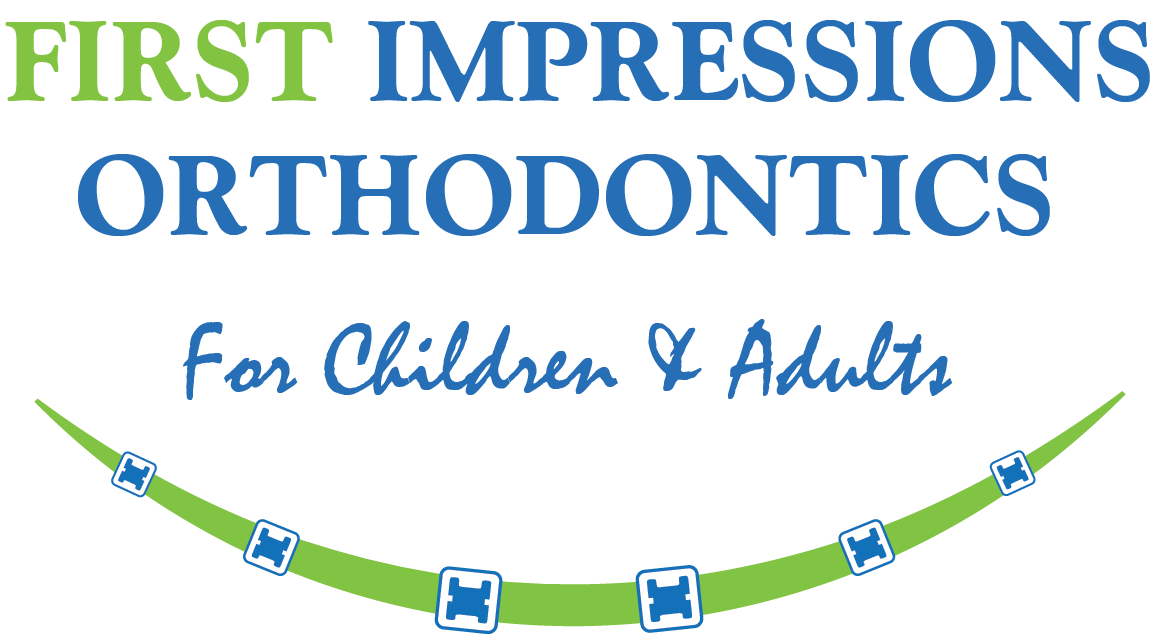TMJ Treatment
Finger pointing at TMJ on skull. When you open and close your mouth, does the sound sometimes remind of you of the rapid popping of bubble wrap? If your jaw makes an unpleasant crackling and popping sound when you flex it, then that could be a major clue that you are suffering from issues with your temporomandibular joint (TMJ).
Your temporomandibular joint serves an important function, connecting your jaw to the rest of your head. When it is working well, most of us pay it no mind. However, the moment it starts to act up, it can lead to serious pain and discomfort. We here at First Impressions Orthodontics for Children & Adults understand completely how miserable you must feel if you have TMJ disorder and we will work with you to help you find lasting relief from it.
What is Temporomandibular Joint Disorder and How Can I Treat It?
Your temporomandibular joint (TMJ) is the hinge that connects your jaw to your skull, but due to certain factors, it can stop working correctly. When this happens, you may notice pain and clicking sounds radiating from your mouth. While the exact cause of TMJ disorder is not always very well known, fortunately, treatment at our office can help you start to feel better.
TMJ disorder can vary in symptoms, ranging from mild to moderate to more severe. If you are struggling with TMJ disorder, then you may notice that your jaw pops or makes cracking sounds when you open and close your mouth. This can be worse when you are trying to eat or chew. You may also notice that you have pain coming up from your TMJ that leads up to your ears or down to your shoulders. You may feel tenderness in your jaw and swelling. The pain can be on just one side, or it can happen on both sides. Your jaw may lock into place when you open or close your mouth, which can understandably be somewhat alarming for some people.
The cause of your TMJ disorder may vary, but one of the leading triggers for it can be traced back to stress. Stress in your day to day life can lead to clenching of the jaw or grinding of the teeth (called bruxism), especially at night. Other causes of TMJ disorder can be arthritis, especially if it attacks your TMJ. An injury to your face or jaw can also lead to TMJ disorder. Loss of connective tissue in this joint can also cause problems with it.
What We Do When You Come To See Us
When you come to us for TMJ disorder, we will start by visually examining you, then listening to determine if we can hear the telltale clicking. Next, we will palpitate (touch) the area to feel for swelling and painful areas. If we determine you have TMJ disorder, we will start you on treatment to help you get relief. Treatment options may include lifestyle changes, physical therapy, and mouth guards. We may also recommend medication, as some types of tricyclic antidepressants, muscle relaxants, and anti-inflammatories have shown to be helpful. For severe cases that are resistant to other treatment, surgery may also be recommended.
If you are struggling with pain in your temporomandibular joint, we understand your struggle and want to help you feel better. To learn more about TMJ disorder, or to set up an appointment with us here at First Impressions Orthodontics for Children & Adults, please give us a call today at (203) 292-9595!
